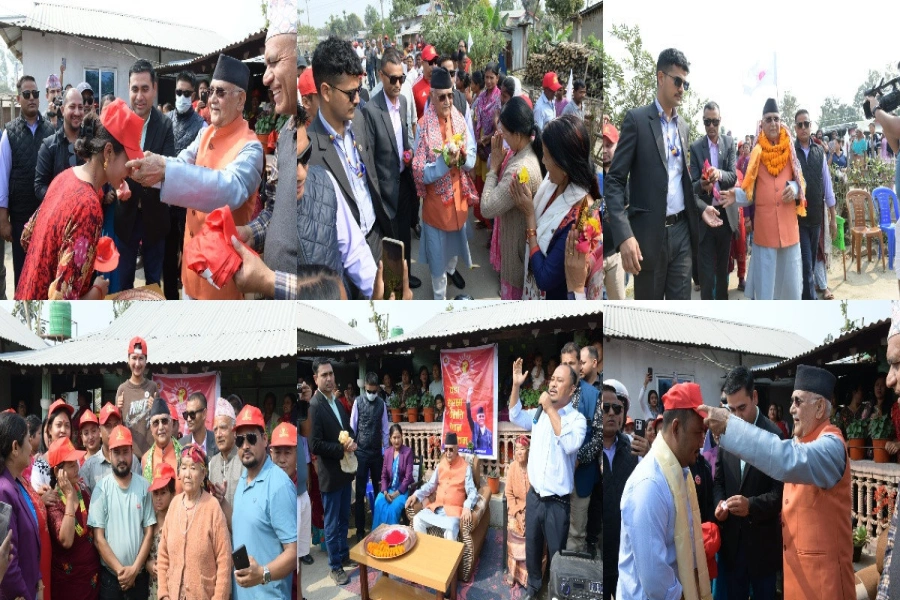It should be noted that mere investing in foreign lands does not constitute illicit activity in an age of globalization and liberalization
At a time when the country is in dire need of soliciting more foreign direct investment (FDI), Centre for Investigative Journalism (CIJ) of Nepal has published five pieces of investigative reports detailing illicit financial flows and money laundering businesses in Nepal. The CIJ Nepal says that they have prepared the reports after spending nearly a year of investigation into 3000 documents, interviewing more than 70 individuals and officials and studying documents provided by the team of International Consortium of Investigative Journalists ( ICIJ)—the investigative journalists renowned for revealing “panama papers” and “paradise leaks”. Keeping aside the quality of the reports, the investigation is praiseworthy as it is first of its kind ever conducted in Nepal.
Broadly speaking, the study of corruption and anticorruption is taking place at two levels—national and international. In the first, the acts of corruption are committed within the boundaries of a single country. With the onset of globalization, corruption is spilling across the borders. The second level involves corruption across the border, extending to multiple countries. These types of corruption involve huge sums of money, channelled through licit and illicit routes and involving multiple layers of agents. Compared to the first type of corruption, these are the most difficult nuts to crack. There is growing body of knowledge on and increase in international attention and collaboration related to anti-money laundering, recovery of stolen assets, strict detection and control of terrorist financing, extradition of corrupt leaders and elimination of safe havens and shell companies. The case of evasion of capital gain tax related to share transfer of NCell is one such big nut that Nepali policy makers are currently grappling with.
Decoding our Politico-Bureaucracy

Facts and findings
Here are some nuggets from the published CIJ Nepal reports: First, more than Rs50 billions have been deposited by Nepalis in the Swiss Banks and the pace of depositing money in Swiss banks has increased sharply after the People’s Movement II in 2006. The chart alongside reveals one such data collected by this author in the past.
Second, not less than 55 Nepali business elites have invested their money abroad in spite of legal restrictions on foreign investment. The naming of 55 Nepalis is too small a number given the increased pace of outward migration from Nepal. It should be noted that mere investing in foreign lands does not constitute illicit activity in an age of globalization and liberalization. There is now a concerted thinking on relaxing foreign investment by Nepalis in line with increased flow of FDI in Nepal. Third, as substantial portion of FDI (two-third) in Nepal has been sourced from tax haven countries like British Virgin Islands (BVI), there is looming doubt on possible money laundering business. The BVI alone accounts for 45 percent of FDI. As our policy makers are parroting on FDI, it is time to assess on the quality of FDI. Fourth, the FDIs are increasingly channelled into real estate, cement industries, tourism and telecom businesses.
As I mentioned in the opening paragraph, the quality of reports, possibly their investigation, looks pretty poor. The teams seem to have taken an approach of naming and shaming of individuals revealed in the panama papers and other leaks. Instead of detecting the source of the problem and their consequences, the reports rely on anecdotal cases. There is rare collation of facts and figures. For example, Nepal has consistently fared poorly in Basel Anti-Money Laundering (AML) Index since its publication in 2012. In 2017, out of 146 countries, Nepal is ranked at 14th position. In 2018, we have been excluded, probably, due to lack of information. Similarly, data published by Global Financial Integrity on illicit financial flows in Nepal speaks of more of greater inflows rather than outflows. Information like this is useful to corroborate one’s investigation. The CIJ Nepal has failed to grasp data like these in their analysis and instead focused on individual cases, that too, at anecdotal level.
Meanwhile, there is now a buck passing between government agencies after the publication of these investigative reports. In response to journalists’ queries, the government spokesperson, Honourable Minister of Communication, has passed the buck to the Ministry of Finance and the Ministry of Law for looking into the cases revealed by NepaLeaks. The Ministry of Finance in turn has passed the buck to the Cabinet as the Department of Anti-Money Laundering has been placed under Prime Minister’s Office. Obviously, the report has turned out to be hot potato. One of the businesspersons named in the report has challenged the investigation by requesting the government to confiscate his Swiss bank accounts if they have found one.
When it comes to investigation into illicit financial flows, how poorly knowledgeable we happen to be is being explained by the question raised by one of our, again, honourable MP in the House to the PM: “As PM is visiting Switzerland for Davos conference, why not he raise the issue of Nepali money in Swiss Banks?” Poor chap has no knowledge of annual jamboree meeting of World Economic Forum in Davos, Switzerland and CIJ Nepal team’s investigation into illicit financial flows and money laundering. If we continue to have MPs like these, one can fairly imagine the unfolding scenario to come in Nepal.






































